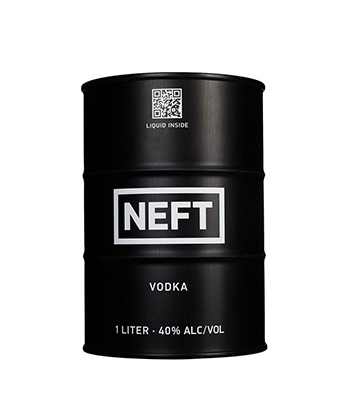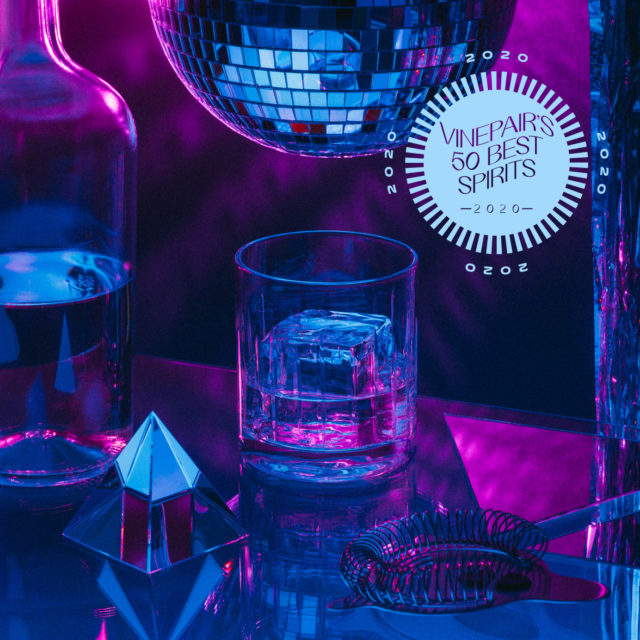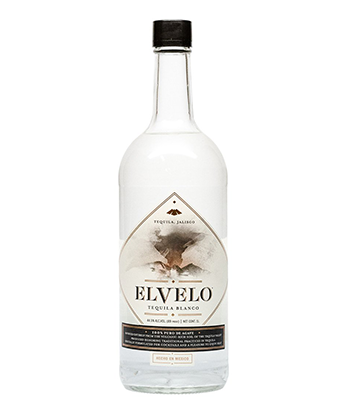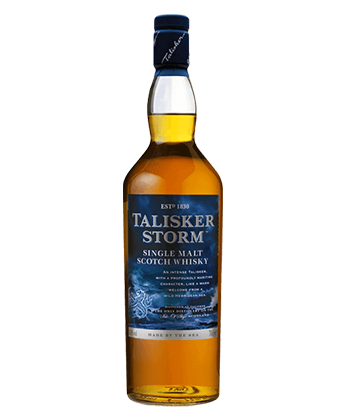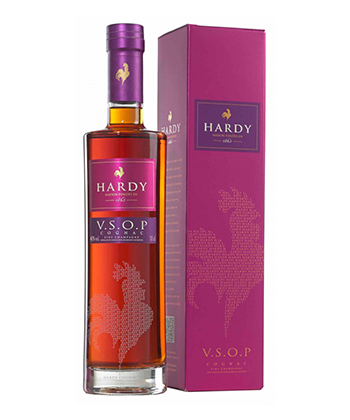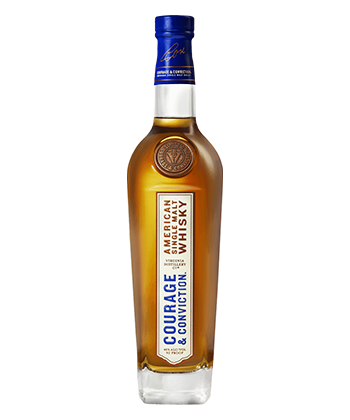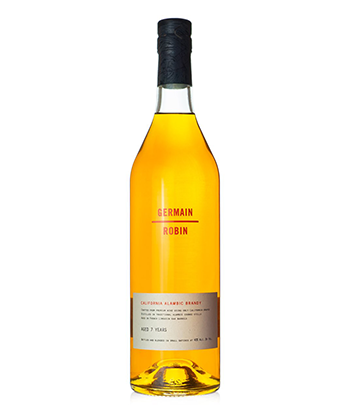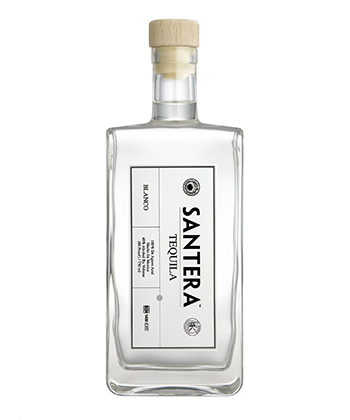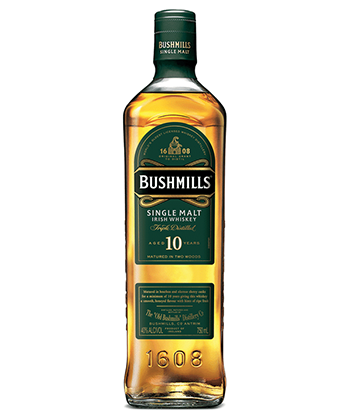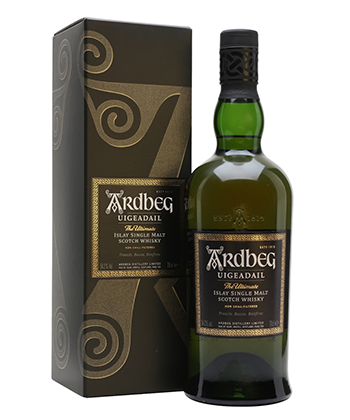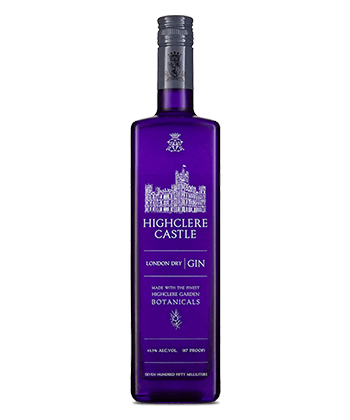All of us will be glad to see the back of 2020, and at VinePair we wanted to go out with a bang. So it is with great pleasure that we publish our first-ever 50 Best Spirits of the Year, joining our annual beer and wine rankings.
This year delivered more occasions than most to stock our home bars. Whether to hone home bartending skills, batch cocktails for socially distanced meetups, or simply add color to our Groundhog Day-esque 2020 existence, spirits have been there every step of the way.
Bourbon continues to dominate on all fronts, from quality to value to sheer variation. It was a good year for aged spirits overall, which account for more than half of the bottles on this list. But those looking to discover their new favorite white spirits for cocktails, from Japanese gins to vodka that actually has character, will also find them on this list.
All the spirits on this list have been sampled and reviewed by VinePair’s tasting panel. After compiling an extensive list of contenders, we met for several rounds of responsible tastings (socially distanced six feet apart, outdoors), a few more rounds on Zoom for lengthy debates, and finally finished a list that we’re especially excited to publish for the first time.
Here are VinePair’s 50 Best Spirits of 2020, tasted and ranked.
This rye-based distillate proves that vodka can deliver distinct aromas and flavors. Toasted sourdough notes lead the nose, before a well-rounded palate that ends with a hint of rye spice. Average price: $29.
A non-age-statement single malt from the Scottish Isle of Skye, Talisker Storm has a subtle nose but intense palate. Drenched in savory smoke, sweet malt, and brine, the whisky finishes with a distinct black pepper note that’s reminiscent of the (more expensive) Talisker 10. Perfect with oysters, this is an approachable intro to the realm of peated Scotch. Average price: $55.
Historic Cognac house Hardy boasts over 150 years of distilling experience, and its mastery of craft is easily detectable in this V.S.O.P. Sweet brown sugar, rich notes of plum and baked apple cinnamon are merely the beginning of this dessert-like Cognac’s pleasures. Silky on the palate, with the caramel-sweet character marrying with oaky earth, this expression has a warming sensation that soothes sip after sip, without ever cranking the heat (or sweet) too high. Like a spiced holiday punch or mulled wine enjoyed in a room full of friends, it’s comfort on the cusp of decadence. Average price: $48.
This Virginia single malt combines a blend of whiskies aged in bourbon, sherry, and Cuvée French red wine casks. Bearing much of the character of young Scotch on the nose, the palate strays slightly into bourbon territory, with notes of cocoa, caramel, and barrel spice, though without the sweet kiss of corn. After sampling this bottle, we’re excited to taste future, older releases. Average price: $72.
Distinctly brandy, though not as you may know it, Germain-Robin arrives in a sleek, minimalist bottle with a flashy glass closure. Distilled from California-grown Colombard grapes in traditional Pruhlo Charentais pot stills, this American brandy has a robust dried fruit core, textured with vanilla, toasted oak, and brown sugar. Average price: $75.
Don’t be fooled by this tequila’s sleek, modern bottle design — meaning, this is not simply a marketing ploy, and there’s serious liquor inside. With vegetal aromas, a faint hint of baking spices, and an invigorating spice that runs throughout, we love it mixed in Negronis in place of gin. Average price: $41.
Though single malt is more synonymous with Scotch, this whiskey from Ireland’s oldest distillery is a fine reminder of the Emerald Isle’s whiskey-making credentials. After 10 years in barrel, there’s no shortage of aged character, but fresh fruit notes and a relatively low ABV keep things spritely from start to finish. Average price: $40.
Another non-age-statement single malt, Ardbeg maintains its reputation as offering some of the peatiest drams on the planet. The words “Treacle. Bacon. Bonfires.” adorn the label, and there’s hardly a better way to sum up this whisky. But beneath the blanket of smoke, there’s character to be found, with notes of candied orange peel and dark chocolate standing out the most. (By the way, Americans, “treacle” means molasses.) Average price: $83.
Highclere Castle is best known as the main location of the historical British drama “Downtown Abbey.” In years to come, it wouldn’t be surprising to find that reputation change because of its association with this wonderful gin. It’s an archetypal London Dry, with distinct notes of juniper, rosemary, and black pepper. Compared with mass-market offerings, it offers extra layers, intrigue, and nuance. Average price: $38.
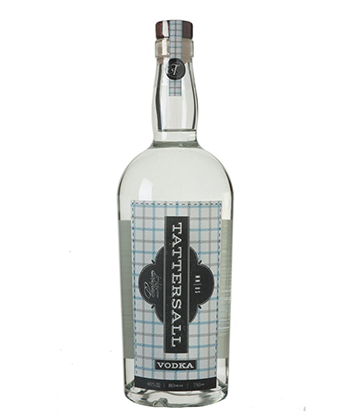
Earlier this year, the Alcohol and Tobacco Tax and Trade Bureau (TTB) updated its official definition of vodka to acknowledge that the distillate can, and does, exhibit character. It’s hard to imagine bottles such as this didn’t factor into that decision. Made from organic corn, it offers toasted grains and dried tropical fruit on the nose. The palate is pleasantly neutral with a velvety, full-bodied mouthfeel. Average price: $27.
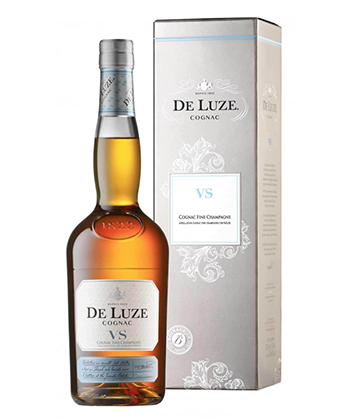
Aged for a minimum of two years, this bottle contains a blend of eux-de-vie from Grande Champagne and Petite Champagne, two of the finest growing regions in Cognac. Its delicate aromas recall fruit and white flowers, while the palate exhibits strong character from aging in French Limousin oak. While priced for cocktails, De Luze V.S. serves as an ideal sipping spirit, especially for warmer months. Average price: $28.
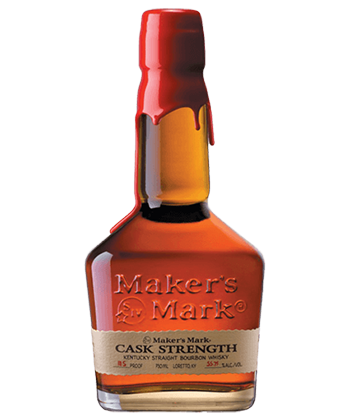
Bottled between 108 and 114 proof depending on the batch, this is the headiest of Maker’s Mark’s regular lineup. The distillery’s signature wheated mash bill delivers a sweet fruit core, with the barrel aging adding char and vanilla. Non-chill filtration maintains great concentration of flavor and a viscous, enjoyable, full-bodied mouthfeel. The burly alcohol content translates to prickly spice rather than heat and ensures its complex flavor profile lasts an age. Average price: $57.
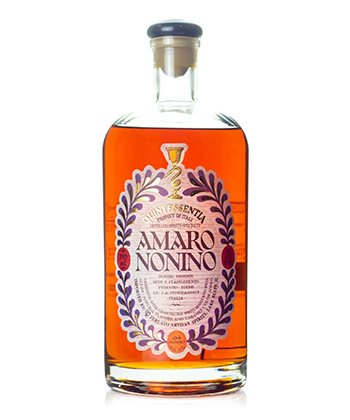
An essential ingredient in the Paper Plane (a criminally underrated cocktail), Amaro Nonino is a wonderful introduction to the world of amari. Made with a grappa base and infused with herbs and botanicals, this amaro is lighter, drier, and less aggressively bitter than other bottles in the category. The nose screams candied orange peel and pine needles, before the palate chimes in with cloves and light caramel. Average price: $49.
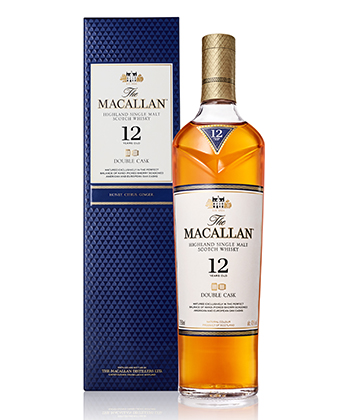
The Macallan’s signature profile no doubt plays a huge role in the brand’s massive popularity, and this well-rounded, accessible bottle stays true to that playbook. “Double Cask” refers to the American and European oak barrels used for maturation, both of which previously held sherry. That combination lends the whisky a honeyed sweetness that will please all whisk(e)y drinkers, and not only Scotch lovers. Average price: $69.
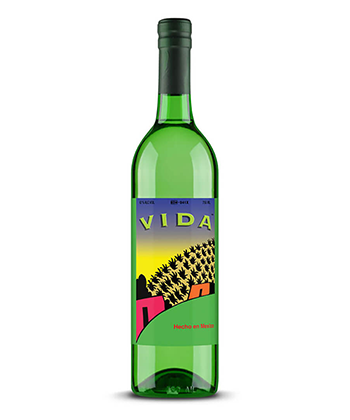
This instantly recognizable mezcal joven is made from eight-year-old espadín, which is roasted for up to eight days, wild fermented, then twice distilled in wood-fired copper stills. Smoky aromas dominate, though it’s as if dried pineapple leaves are being used for combustion. Tropical fruit kicks in on the palate, which is racy and shows a slight salinity. Try in a split-base Margarita, using equal half measures of tequila and mezcal in place of the usual one part tequila. Average price: $37.
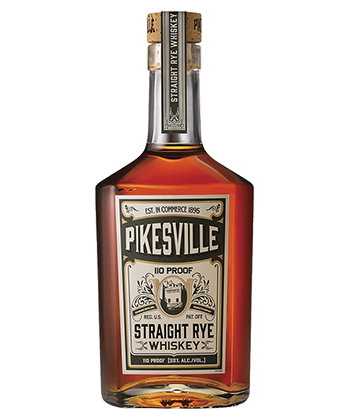
A historic Maryland brand, Pikesville is now owned and produced by Heaven Hill in Kentucky, using a relatively low proportion of rye in its mash bill. This whiskey is notable in that it’s bottled at 55 percent ABV, making it one of very few year-round rye expressions available at such a high proof. Building on a solid fruity foundation, the alcohol and six years of aging contribute extra intense aromas and flavors. Average price: $52.
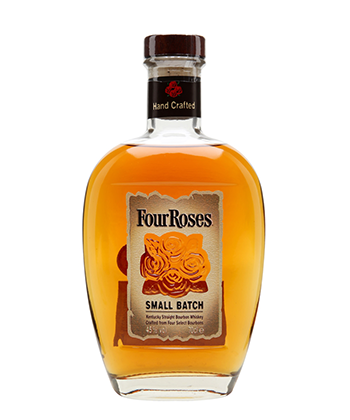
If you’re looking for bourbon that’s rich in character but don’t want the high ABV that usually accompanies that, Four Roses Small Batch is the best bet on the market. Arriving at 45 percent ABV, this release gains light, floral aromas and a racy palate via a blend of four different bourbons. Each utilizes its own combination of yeast strain and high-rye mash bill. This is ideal for bourbon geeks and priced for the mass market. Average price: $36.
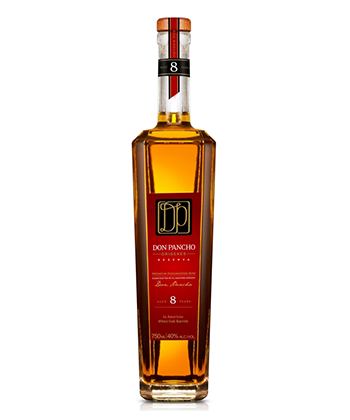
Don Pancho 8 Year Old should be the first stop for anyone looking to begin their exploration of sipping rum. With remarkable balance and grace, it serves an attractive mix of vanilla, sweet cherry, and molasses. Its caramel character will please bourbon drinkers, while the fruit notes will surely win over Cognac fans. All who taste and enjoy this will be astounded by its price. Average price: $36.
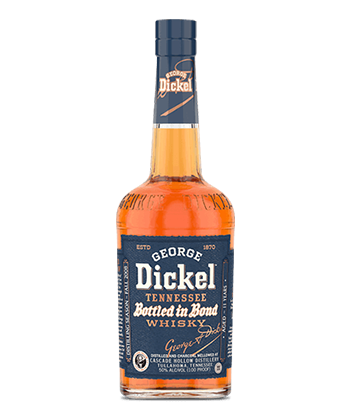
The follow-up to Nicole Austin’s debut release as general manager and distiller at Cascade Hollow, this bottle shows no symptoms of second album syndrome. While a couple of years younger than the 2019 release, this whiskey is big, bold, and brimming with character. The nose effuses waffles and maple syrup, while each sip delivers vanilla and toasted oak. This bottle shows Tennessee whisky is just as serious as those that flow from Kentucky. At less than 50 bucks, it’s a bonafide bargain. Average price: $48.
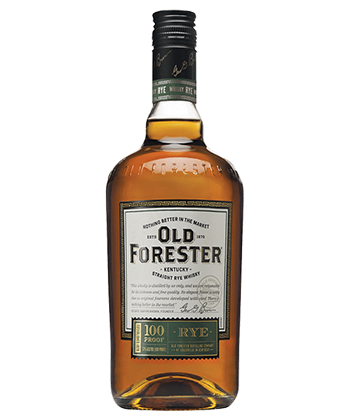
In truth, any of Old Forester’s lineup could have made this list, as the Brown-Forman-owned distillery consistently over-delivers on quality for price. With 65 percent rye included in the mash bill, this bottle is an outlier among Kentucky-made ryes, as is its herbaceous, fruity profile. At this price point, you won’t feel bad for mixing it in cocktails — it pours an excellent Manhattan — but by no means is sipping straight or on the rocks off the table. Average price: $26.
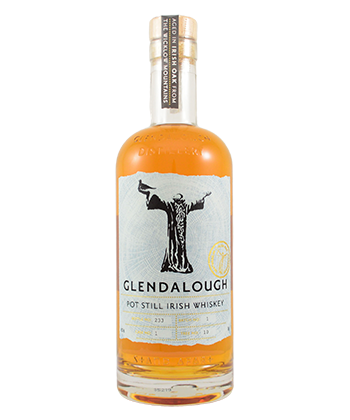
Of the many fine pot still Irish whiskeys we enjoyed this year, Glendalough stands out for the one-year finishing period the whiskey spends in virgin Irish oak casks prior to release. The influence is detectable on both nose and palate, adding a notable woody note that integrates nicely with the lively, tangy pot still character of the distillate. Average price: $56.
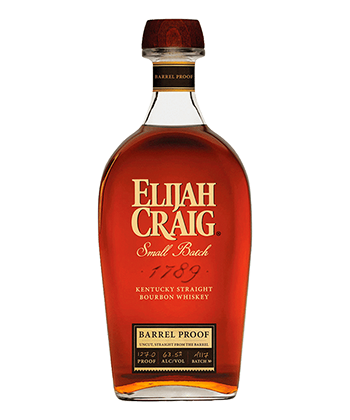
There’s no denying this bourbon packs a punch on the alcohol front. Although it’s not a bottle we’d recommend to those taking their first steps into whiskey exploration, the 120-plus proof release lands with grace, highlighting and even boosting the spirit’s complexity. Notes of orange peel, baking spice, and vanilla shine from nose to finish. Sip this neat, if you dare, or over a large rock of ice. But damn if it doesn’t serve one of the finest Old Fashioneds we’ve ever tasted. Average price: $78.
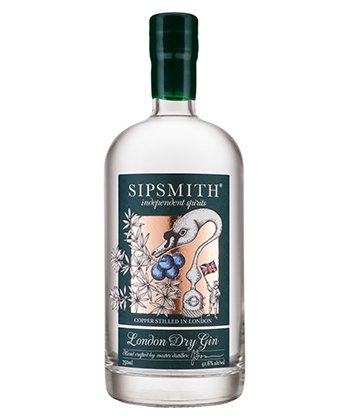
Though something of a modern classic brand by now, Sipsmith succeeds with an uber-traditional London Dry profile. There are many worthy options on the market within this style, but this brand rises head and shoulders above them with its focus on quality botanicals. The juniper notes are vibrant and fresh; the citrus peel piercing. This is the quintessential “G” to tonic’s “T,” but don’t overlook it for Friday night Martinis. Average price: $34.
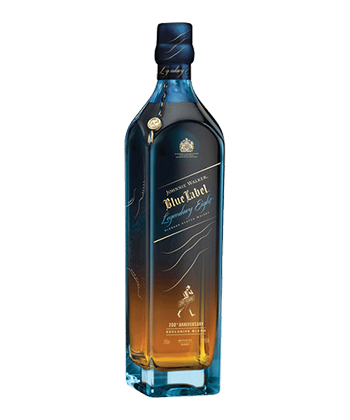
Sourced from eight iconic Scottish distilleries, all of which are featured on the bottle, this release celebrates Johnnie Walker’s landmark 200th anniversary. In truth, this is not just an homage to the brand but Scotch as a whole, showcasing sweet malt, earth, oak, and a subtle hint of smoke in one expertly composed blend. Though undoubtedly pricy, you’re buying a piece of history with this bottle. Average price: $387.
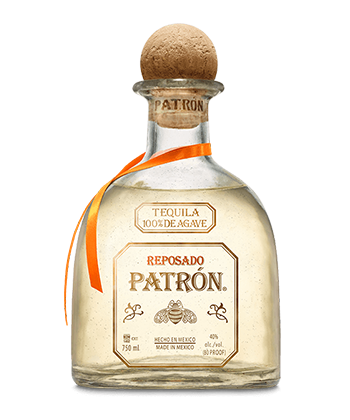
It’s easy to look past Patrón in the search for new and exciting tequilas. But this is a brand we came back to time and time again this year, and it delivered on every occasion with every bottle in its lineup. Among them, the reposado stands out the most to us this year. Sharing the pale gold hue of a fine Chardonnay, this tequila serves citrus, vegetal, and spiced notes of remarkable intensity. Average price: $51.
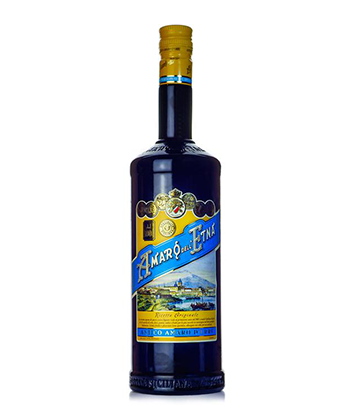
Distilled mere miles from Mount Etna, this amaro is a celebration of Sicily in a glass. Bitter orange peel is the first thing that hits and continues well onto the finish. The 26 herbs and plants infused in the liqueur add infinite layers and depth. This is a wonderful amaro that oozes rustic charm. Average price: $34 (1 liter bottle).
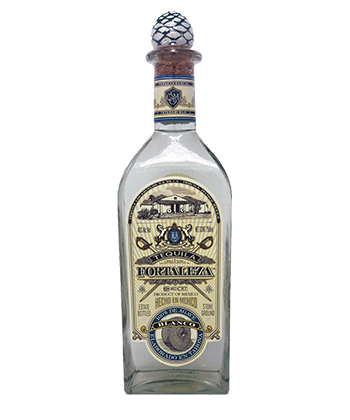
Fortaleza Blanco is an industry darling that lives up to its bartender-backed credentials. Pure, unadulterated agave shines throughout, starting with herbaceous, floral aromas and leading into a full-bodied, peppery palate. While it mixes a Marg like few others, Fortaleza offers the rare opportunity for a neat, sipping blanco tequila, no salt or lime necessary. Average price: $51.
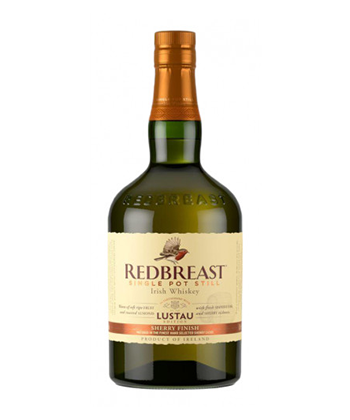
Sherry cask finishing is all the rage across practically every spirits category nowadays. This is one of the best examples of the process’s use by an Irish whiskey distiller. Comprising a blend of malted and un-malted barley, the whiskey is triple-distilled, then aged for nine to 12 years in bourbon and sherry casks. Doubling down on the sherry influence, the whiskey then rests for one final year in oloroso sherry butts sourced from Bodegas Lustau. While it retails for slightly more than the comparable Redbreast 12 Year Old, it’s worth it to enjoy the perfect marriage of sherry and pot still whiskey. Average price: $73.
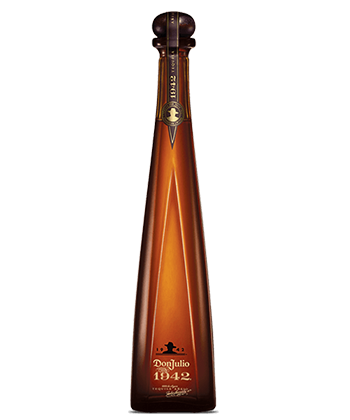
Incredible hype surrounds this standout bottle, but Don Julio 1942 persists as one of the best-quality tequilas around. The brand shares little about its aging process other than the fact the tequila spent a minimum of two years in oak, which classes it as an añejo. Its hue is lighter than most in that category, sharing the light-golden tone of a rich white wine. The aromas and flavors dance between oak and agave, delivering a one-two of spicy vegetal notes and attractive vanilla. Average price: $165.
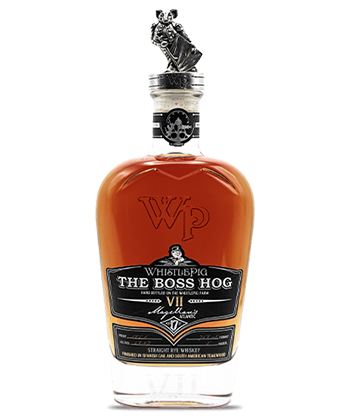
The seventh release in WhistlePig’s flagship Boss Hog collection, this is a rye whiskey unlike any other. It could have placed in the top 10 for flavor, but its price point is an unavoidable high barrier for entry. It also has a unique character that could prove polarizing for traditional whiskey drinkers. Finished in Spanish oak and South American teak wood, intense aromas jump from maple to cinnamon to vanilla ice cream to spiced, toasty wood. The palate is equally concentrated and each sip is a memorable event in its own right. Average price: $500.
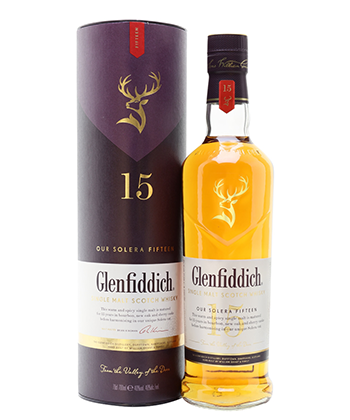
This single malt utilizes a compelling sherry-inspired maturation technique. After aging in European oak sherry casks and virgin oak, the whisky mellows in Glenfiddich’s solera vat, which hasn’t been emptied since 1998, according to the distillery. While the sherry influence is actually more subtle than you might expect, this single malt offers tons of aged character in the form of nuts, dried fruit, and leather. Average price: $69.
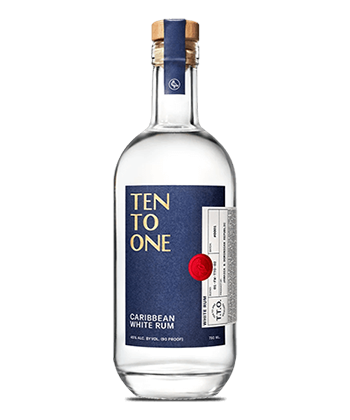
Made using column and pot still rums sourced from across the Caribbean, Ten to One is a white rum that’s perfect for cocktails. Rich molasses and grassy, herbal notes provide character, while its 45 percent alcohol content ensures the spirit will shine no matter the mixer or modifier used. Whether you’re perfecting your Daiquiris, or working on your Tiki game, this bottle demands a place on your home bar. Average price: $30.
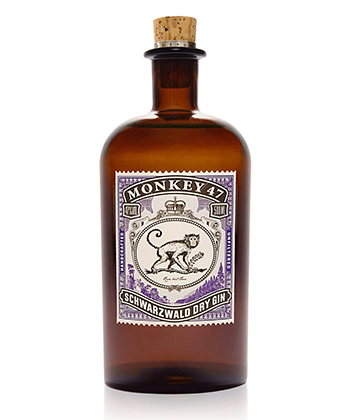
While the juniper influence is dialed down in this gin-aficionado favorite, Monkey 47’s mastery is exhibited via impossibly delicate balance. The manner in which a huge list of botanicals not only work together but individually shine is nothing short of excellent. With so many aromas and flavors to appreciate, Monkey 47 makes a compelling argument as a “sipping” gin. If that’s not your thing, prepare for one of the best dry Martinis you can make (garnish with a grapefruit twist!). Average price: $69.
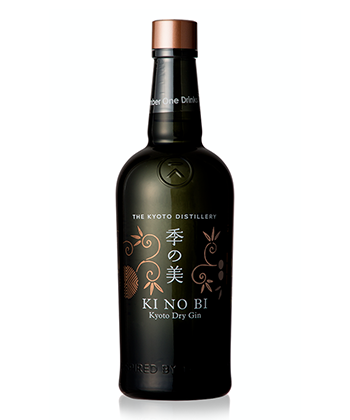
It is by no coincidence that Ki No Bi and Monkey 47 place next to each other on this list. Trying to pick between them divided the VinePair team, and ultimately came down to preference rather than quality. The leading “craft” distillery to emerge from Japan’s fast-evolving gin category, Ki No Bi dazzles with its delicate fruity and floral profile, and notable influence of Japanese botanicals such as yuzu and shisho leaves. This is one of the highest-quality gins money can currently buy. Average price: $76.
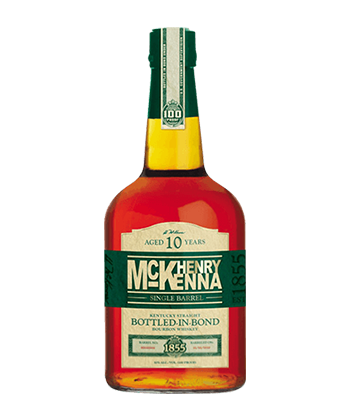
Dried fruits and light caramel set the tone on this bourbon’s inviting nose, continuing onto the palate with great intensity. Longtime drinkers of this bottle may lament the retail price hikes of recent years. Still, at 10 years old and 50 percent ABV, and with such an approachable profile, we feel it delivers in the modern market. Average price: $73.
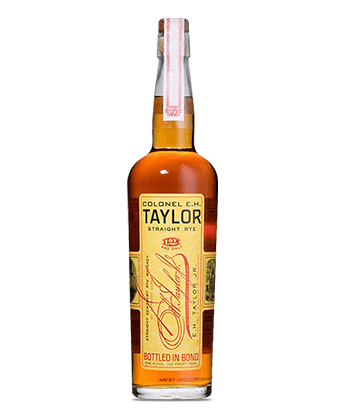
Finding any of the bottles from Buffalo Trace’s E.H. Taylor lineup is a lottery, and one that carries a high price of entry. But this bottled-in-bond rye lives up to the hype. Thought to be aged around nine to 10 years, this whiskey maintains youthful fruit notes from fermentation while exhibiting hints of leather and oak from patient aging. If you happen upon a bottle in your local liquor store, snag it and set aside for special occasions. Average price: $146.
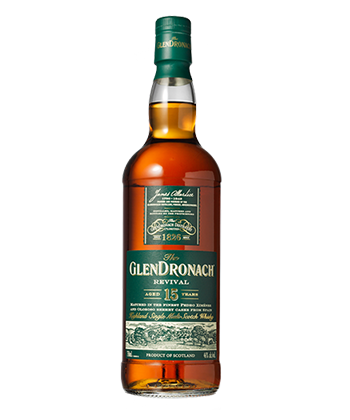
Following a three-year absence brought about by supply constraints, The GlenDronach Revival Aged 15 Years was re-released to market in 2018 to the delight of all sherry-cask-aged Scotch lovers. Matured in oloroso and Pedro Ximenez casks, the sherry influence is evident in every sniff and sip, and the marriage of fortified Spanish wine and fine single malt is remarkable. This is a charming, luxurious whisky seeping in ripe blackberries, walnut praline, and ripe fig. Average price: $95.
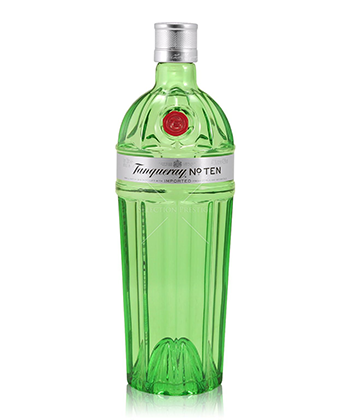
Tanqueray lives up to the bill as “the ultimate cocktail gin.” It is much less juniper-heavy than traditional London Dry gins, and its herbal, citrusy character proves a perfect match for tonic water, delivering an even more refreshing iteration of the classic Highball. “Tanq 10” really comes into its own when mixed with dry vermouth in a Martini, however. Those citrus notes call for lemon twist, but a subtle saline streak says olives are not out of the running. Our verdict? Go for both. Average price: $33.
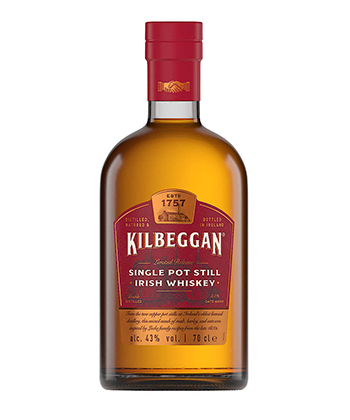
This bottle represents both the past and future of Irish whiskey. As a pot still release, a style that’s unique to Ireland, it takes advantage of the provision that allows for up to 5 percent of other cereals that can be included in the mash bill. If corn defines bourbon, and malted barley Scotch, then Kilbeggan proves that other Irish distillers should be embracing oats. Even at just 2.5 percent of the mash bill, the impact on the whiskey’s character is profound, adding distinct notes of breakfast oats and an opulent, rounded mouthfeel. If you’re looking for something new and exciting to gift the whiskey lover in your life — no judgment if that person is you — this is the bottle. Average price: $45.
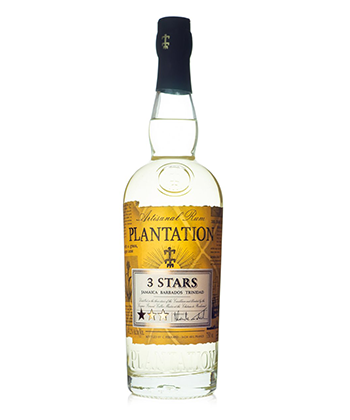
As 2020’s relentless hits just kept coming this year, so did the rise of countless newly minted home bartenders. And for us, this Caribbean mix became a home bar essential. Along with VinePair’s staff, those wanting to shake their best or first Daiquiris should look no further than Plantation 3 Stars, a blend of aged and un-aged rums from Jamaica, Barbados, and Trinidad. While carbon filtration is used to maintain an almost clear color, all the character of the base molasses distillates remains. Given its versatility and mass appeal, we give this rum not three stars but five. Average price: $20.
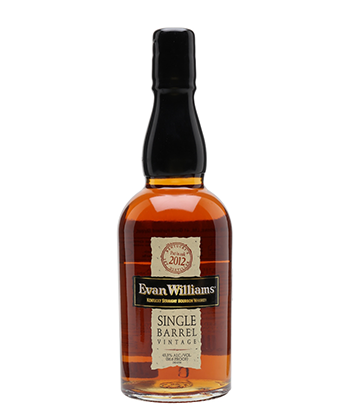
Every aspect of this bourbon lends itself to being your go-to weekday dram. At 43.3 percent ABV, it has an easygoing profile but is by no means lacking in intrigue. It remains comfortably affordable at less than 30 bucks per bottle, and knocks every similarly priced offering out of the park. For whiskey geeks, there’s also the allure of its single barrel nature, with an uncommon age statement and hand-printed barrel numbers on the label. Average price: $29.
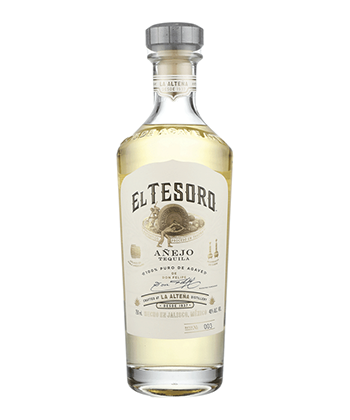
The light golden hue of this tequila offers the first indication this is an añejo unlike most others. The subtle influence of oak — despite a minimum two years aging in ex-bourbon barrels — is evident not only in its appearance, but every step of perception: Rather than vanilla or caramel, intense white petals lead the nose; then, rich agave and sweet fruit drive the palate before a gentle oaky reminder that this spirit has spent time in cask. Average price: $54.
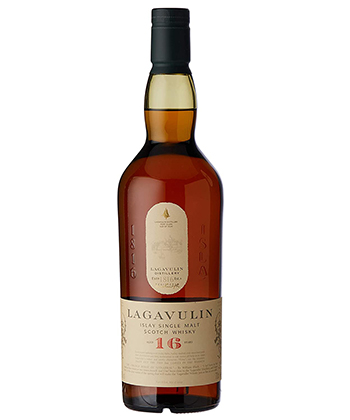
A quintessential example of the peated single malts that have made Islay famous, earth and smoke define this whisky, but it has even more to offer. Among the ashy smoke, there’s fruity sweetness, light caramel, and a spray of salty sea water. Though more of a second step in a drinker’s peated malts journey than the first, this is a standout single malt that every Scotch drinker should reach for at least once. Average price: $99.
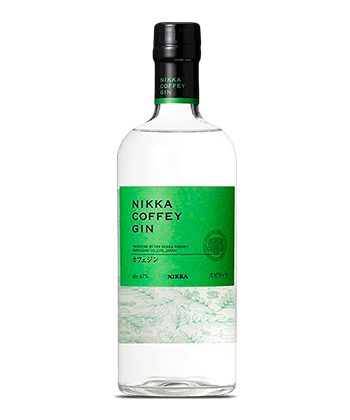
If you’ve heard rumblings of the high quality gins emerging from Japan, it was probably from VinePair. If you’re looking for a bottle to kick off an exploration, Nikka Coffey is both the starting point and destination. More than any other bottle, it proves that “Japanese” gin is not just a designation of origin, but a clearly defined style, calling upon native botanicals to reimagine what gin can be: The category-defining juniper, coriander, and angelica still lead the charge, but are surrounded by a cavalry of complex citrus fruits such as yuzu, kabosu, amanatsu, and shequasar. This is a gin that’s perfect for every cocktail and occasion, whether mixed with tonic and lime in a refreshing Highball, or stirred ice-cold with dry vermouth and garnished with a lemon peel in a Martini. Average price: $47.
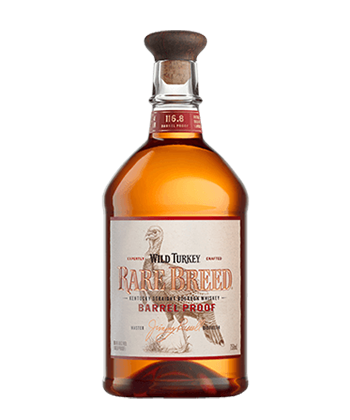
As modern barrel-proof standards go, there’s nothing wild about Rare Breed’s 58.4 ABV content. Nor, indeed, is it a stark departure from the strength of the brand’s world-famous 101 expression. While apparently minor, the extra percentage points, and the expression’s extended aging period, matter. They offer an extra gear that kicks up the complexity and overall enjoyment. Rare Breed excels by virtue of a dazzling nose and palate, and a profile that remains approachable to all whiskey drinkers, rather than just fans of overproof expressions. At around 50 bucks, it may not be an everyday sipper, but it’s got every day from Thursday onward covered. Average price: $49.
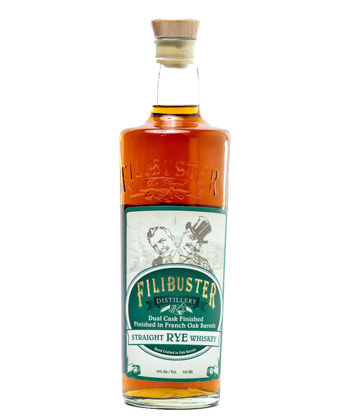
From an under-the-radar craft Virginia distillery, this is a world-class rye. Its immediately distinctive personality challenges the notion that rye is simply bourbon’s “spicy” cousin. Instead, the full spectrum of the grain’s qualities are highlighted in this whiskey’s 90 percent rye, 10 percent malted barley mash bill. Long before any prickle of spice, there’s lively dill and a cleansing spray of spearmint. Next comes the faint bite of pumpernickel, toasted caraway seeds, and then — finally — the palate is met with a pleasant prickling sensation. Without doubt, four years aging in charred American oak and a finishing period in sherry and French wine barrels have added depth and complexity. But it’s the grain, fermentation, and distillation that really shine in this celebration of rye whiskey. Average price: $44.
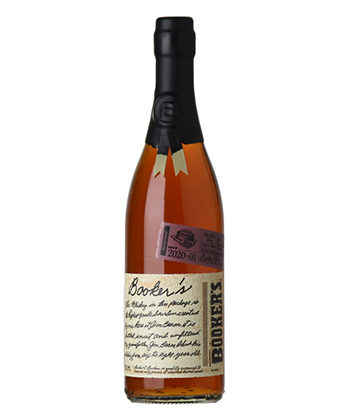
On the colorful tag that adorns each of its signature wine-shaped bottles, Booker’s offers a remarkable amount of intel. Within the three postage stamps of the purple ticket used for the brand’s first release of 2020, we learn that this bourbon aged for exactly six years, four months, and 21 days. We also learn of its burly 63.2 percent ABV content, alongside its technical name (Batch # 2020-01); and its more nostalgic “Granny’s Batch” nickname. All you really need to know is that this bourbon smells and tastes like a Snicker’s bar, pumped full of cask-strength whiskey. It’s a decadent and memorable occasion. Even without the proof, the intensity of both aromas and flavors ensure a few small drops poured in a glass will last longer and deliver more than three fingers of almost every other bottle on your brown liquor shelf. Average price: $87.
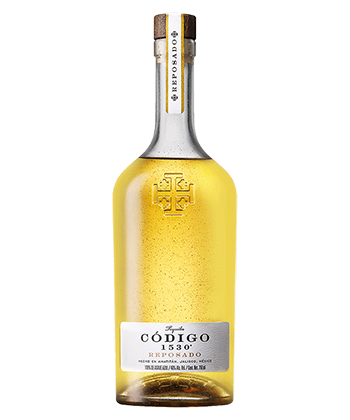
Código 1530 Reposado tequila defines its category by showing us that reposado is more than a path between blanco and añejo. Instead, Código 1530 proves it’s a route worth taking. At its core is all the savory complexity of the brand’s similarly impressive blanco. Some six months of aging in former Napa Valley Cab French oak barrels imbue this tequila with a note so unmistakably vanilla, it’s hard to tell whether there is any residual sweetness or whether it’s sensory memory kicking in (likely the more powerful latter). Either way, this tequila manages to be both luxurious and lithe, and captures the beauty of the spirit’s transition from blanco to añejo. Average price: $69.
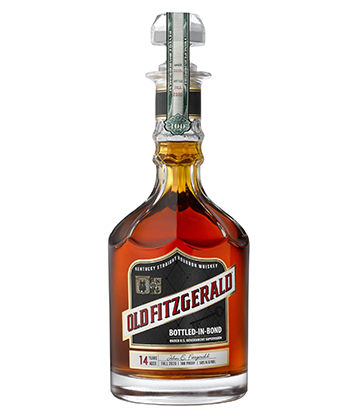
From the first time we tasted the Old Fitzgerald Fall 2020 release, it was clear this bottle is special. That shouldn’t come as a surprise, given its reputation — this is Heaven Hill’s flagship bourbon, after all — but it had a lot to live up to (namely its price tag, which far exceeds a weeknight dram — expect to pay at least twice the MSRP of $140 at retailers outside control states). Yet, any niggling trepidation is instantly allayed upon the first sniffs and sips of this memorable bourbon.
The sweet, wheated mash bill charms like a smile. The finish doesn’t linger but floats, like a crisp autumn leaf caught in a brisk November gust. While its aromas and flavors check all the boxes, this whiskey is more than the sum of its parts. It’s an experience — one delivered without earth-shattering proof or finishing techniques, but via pure, 14-year-old bottled-in-bond bourbon.
Drinking fine whiskey is an experience that’s elevated with fine company, and this is a bottle you’ll definitely want to share. But to capture a few moments alone is a powerful experience. Average price: $140 (MSRP).
